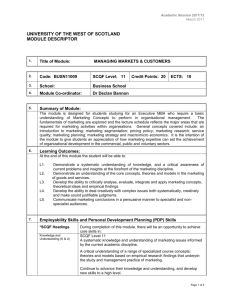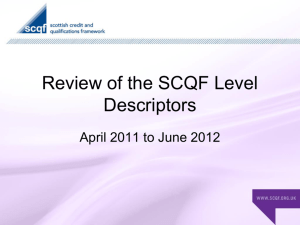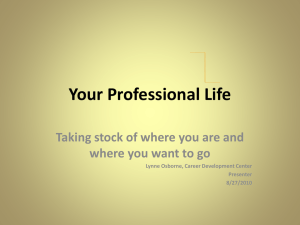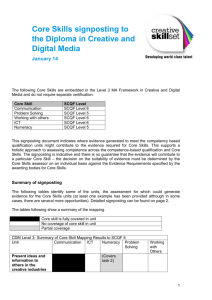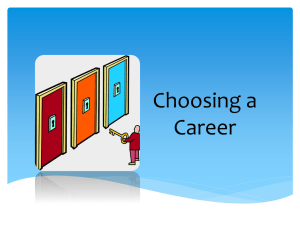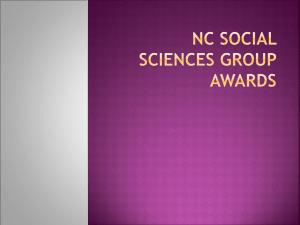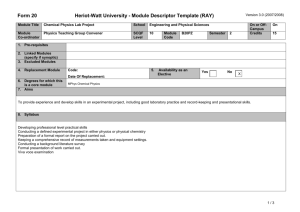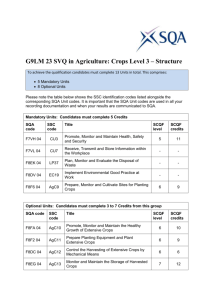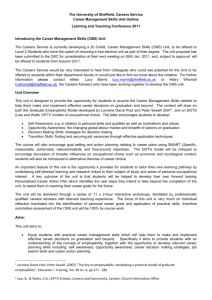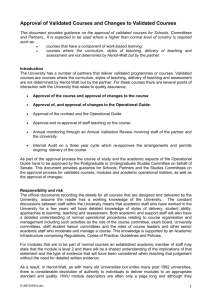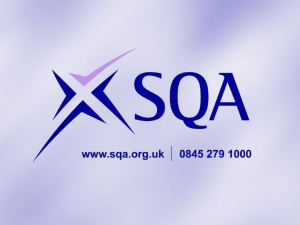Possible conversation topics for DoS meetings
advertisement
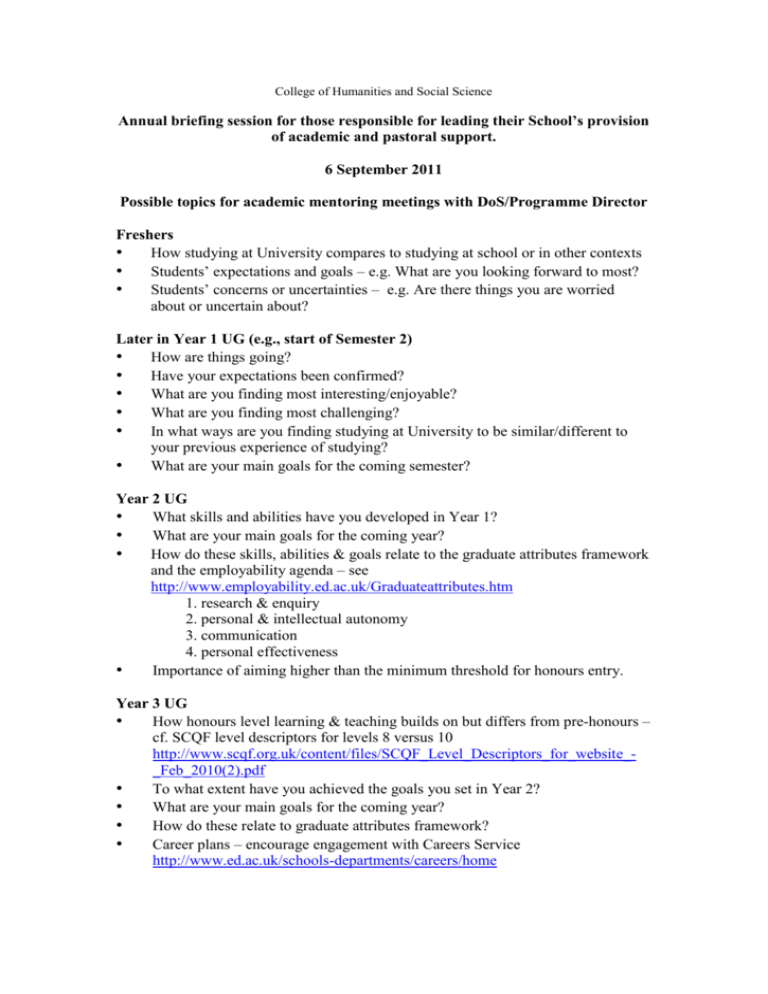
College of Humanities and Social Science Annual briefing session for those responsible for leading their School’s provision of academic and pastoral support. 6 September 2011 Possible topics for academic mentoring meetings with DoS/Programme Director Freshers • How studying at University compares to studying at school or in other contexts • Students’ expectations and goals – e.g. What are you looking forward to most? • Students’ concerns or uncertainties – e.g. Are there things you are worried about or uncertain about? Later in Year 1 UG (e.g., start of Semester 2) • How are things going? • Have your expectations been confirmed? • What are you finding most interesting/enjoyable? • What are you finding most challenging? • In what ways are you finding studying at University to be similar/different to your previous experience of studying? • What are your main goals for the coming semester? Year 2 UG • What skills and abilities have you developed in Year 1? • What are your main goals for the coming year? • How do these skills, abilities & goals relate to the graduate attributes framework and the employability agenda – see http://www.employability.ed.ac.uk/Graduateattributes.htm 1. research & enquiry 2. personal & intellectual autonomy 3. communication 4. personal effectiveness • Importance of aiming higher than the minimum threshold for honours entry. Year 3 UG • How honours level learning & teaching builds on but differs from pre-honours – cf. SCQF level descriptors for levels 8 versus 10 http://www.scqf.org.uk/content/files/SCQF_Level_Descriptors_for_website__Feb_2010(2).pdf • To what extent have you achieved the goals you set in Year 2? • What are your main goals for the coming year? • How do these relate to graduate attributes framework? • Career plans – encourage engagement with Careers Service http://www.ed.ac.uk/schools-departments/careers/home Year 4 UG • How does dissertation (or similar) work build on earlier skills and abilities? What new skills & abilities will be required and developed? • To what extent have you achieved the goals you set in Year 3? • What are your main goals for the coming year? • Further discussion of career plans and strategies for applying for employment/further study – encourage engagement with Careers Service events and resources on CVs, interview technique etc • Encourage reflection on strengths, experiences and achievements – generic skills as well as subject knowledge, extra-curricular as well as curricular PGT • • • • • • How postgraduate level learning & teaching builds on but differs from undergraduate level – cf. SCQF level descriptors for levels 10 versus 11 http://www.scqf.org.uk/content/files/SCQF_Level_Descriptors_for_website__Feb_2010(2).pdf What are your main expectations of the programme and your goals for the coming year? How do these goals relate to the graduate attributes framework and the employability agenda – see http://www.employability.ed.ac.uk/Graduateattributes.htm 1. research & enquiry 2. personal & intellectual autonomy 3. communication 4. personal effectiveness Nature of the transition to the dissertation stage. Career plans and strategies for applying for employment/further study – encourage engagement with Careers Service http://www.ed.ac.uk/schoolsdepartments/careers/home Encourage reflection on strengths, experiences and achievements – generic skills as well as subject knowledge, extra-curricular as well as curricular
